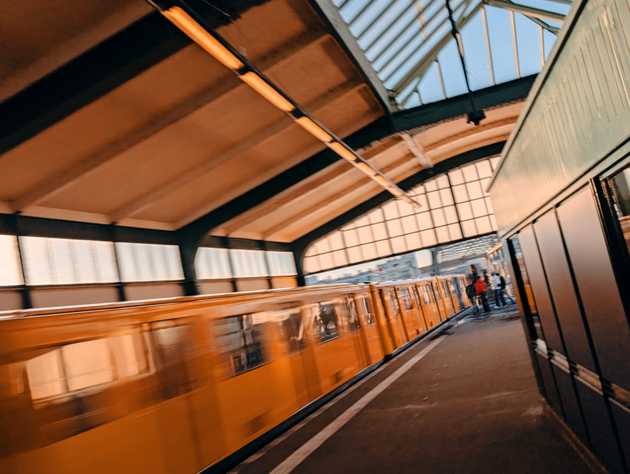Despite tremendous leaps in safety, air travel is still fraught with danger. Crashes and hijacking have luckily become few and far between, but a nagging inconvenience remains: the unintelligible in-flight captain announcements. The overhead speakers clearly haven’t been tested with two running jet engines at full throttle. Mid-flight, the captain could be inaugurating the tax-free sale of cheap knock-offs or revealing a catastrophic failure, sending the plane plummeting straight into the crater of an active volcano. Until overstuffed carts start strutting down the aisle or a round of the Floor is lava breaks out, the passengers are none the wiser.
Away from the sky and its dangers, those who choose a greener means of transportation are faring better. See, it seems whoever installs the speakers on aeroplanes is also responsible for announcement systems in train stations. This unnamed conglomerate exhibits yet another oversight, less deadly this time, but annoying nonetheless. Train stations are often huge cavernous spaces where the sounds of trains, chatter and conspicuous illicit activities bounce off in all directions, creating a symphonic cacophony.
The nightmare continues on board; as the train squeaks and hisses, the conductor’s announcements fall on deaf ears. Have zombies taken over the upcoming station? Has an unforeseen black hole devoured the tracks? Or are the riders simply being reminded of the gap separating the train from the platform at the next stop? No matter the outcome, one thing is clear; in the midst of the unintelligible words blasting out the low-quality speakers, the commuters can make out “train station”. Dare I say, they only understand train station.
Learning German, I can only marvel at the stories that gave birth to its vast palette of idioms. From medieval times until the reunification, centuries of philosophy, literature, religion, science, conflict and peace have shaped Germany and its language. Many expressions in use nowadays can trace their origins to past eras, where society and culture seem unrecognisable through our modern lens. When idioms become ubiquitous, people take them at face value, ignoring their rich history. As a restlessly curious person, I prefer to leave no stone unturned.
One expression I came across early on in my German journey is Ich verstehe nur Bahnhof, lit. I only understand train station. It’s a more flowery way to say that one understands nothing.
As someone living in Germany and often taking trains, when the Deutsche Bahn overlord wakes up on the right side of the bed, I’ve been in situations where a cryptic announcement flew, literally, over my head. That’s when it hit me — thankfully, not the train. Ich verstehe nur Bahnhof must have been born out of the frustrated travellers, who felt clueless as train travel became ubiquitous in Germany and rudimentary speakers left them scratching their heads. At last, an idiom that still rings true in this day and age.
My victory lap was short-lived — cut off by a train breakdown in the middle of nowhere. The origin of the expression is more sinister than anything Deutsche Bahn could put its passengers through. The war is long over, but its spectre can still be felt in today’s Germany. Tragedies that affected millions have left their marks on language. Beyond stories of death, injustice, resistance and heroism, the war gave rise to expressions still in use nowadays. Ich verstehe nur Bahnhof is one such example.
As World War 1 drew to a close, it was clear that Germany wouldn’t emerge victorious. German soldiers stationed on the front lines were exhausted, demoralised and yearning to return home. In early 20th-century Europe, long before the advent of car-sharing apps or quantum teleportation, rail was the mode of transportation of choice for long journeys. Any mention of train stations meant repatriation — a ticket back to the families and lives left behind, or what little remained of them. And so the soldiers came up with Ich verstehe nur Bahnhof when taking part in conversations they didn’t understand. Its use later spread across German society as a whole and it’s still a popular expression to this day.
While Germans chose to only understand train station, other Europeans stayed on track, keeping language at the heart of their equivalent expressions. When faced with confusion, the English complain about Greek, the French about Chinese and the Italians about Arabic. The current infamy of Deutsche Bahn maintains the connection between trains and confusion very much alive — while ensuring many customers miss their connecting rides.
